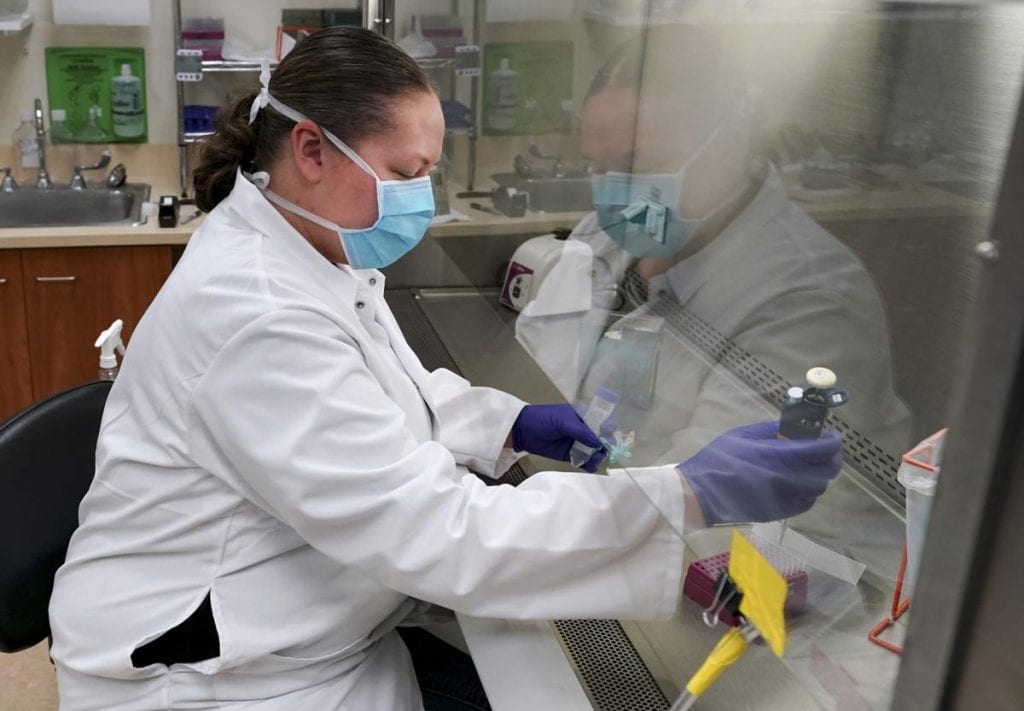23 Aug UW-Madison faculty help nation, state plan COVID-19 vaccine allocation

Lindsay Hill-Batorski does vaccine research at FluGen in Madison. STEVE APPS, STATE JOURNAL ARCHIVES
Health care workers, older adults, people with serious medical conditions and minorities are among groups that might get COVID-19 vaccines first if supply is limited, as federal and state committees rush to set priorities before vaccines become available.
Deciding how to allocate any scarce immunization is no easy task. But doing so in the middle of a pandemic — not knowing when vaccines might be approved, how well they might work and whether one or two doses will be needed, among other uncertainties — is a major undertaking.
“We’re in the middle of a public health crisis and we’re trying to build the airplane while free falling,” said Dr. Jonathan Temte, associate dean of the UW School of Medicine and Public Health, who is on a federal work group and a state committee looking at how to apportion vaccines against the coronavirus.
The process “is very fast moving,” said Alta Charo, a UW-Madison bioethicist who is on a separate federal committee studying equitable dispersal of COVID-19 vaccines. It first met in late July and expects to release draft recommendations by early September. “What makes it even harder is that the information keeps changing in real time as we’re working,” said Charo, who is also part of the state effort.
Among about 160 vaccine candidates, 30 are in clinical trials, including roughly half a dozen in late-stage studies required before seeking approval. Companies are racing to have vaccines ready by the end of this year or early next year, but no timeline is guaranteed.
Many other factors — such as how quickly vaccine can be manufactured, how many people will want the vaccine, whether the goal is to prevent deaths or subdue the pandemic and even the temperature at which some vaccines must be stored — come into play, experts say.
“We don’t necessary know yet whether the same vaccine that protects you from getting sick will also prevent you from passing (COVID-19) on,” Charo said.
“If you’re a middle-aged-to-older African American female medical assistant with diabetes and hypertension, it looks to me like you’re on top of the list to get the vaccine,” he said.
The three UW-Madison faculty are helping the country determine who should get preference for immunizations against COVID-19 amid a complex landscape in which some vaccines might work better than others, especially in different groups of people, even as they’re likely to become available at different times.
Among about 160 vaccine candidates, 30 are in clinical trials, including roughly half a dozen in late-stage studies required before seeking approval. Companies are racing to have vaccines ready by the end of this year or early next year, but no timeline is guaranteed.
Many other factors — such as how quickly vaccine can be manufactured, how many people will want the vaccine, whether the goal is to prevent deaths or subdue the pandemic and even the temperature at which some vaccines must be stored — come into play, experts say.
“We don’t necessary know yet whether the same vaccine that protects you from getting sick will also prevent you from passing (COVID-19) on,” Charo said.



